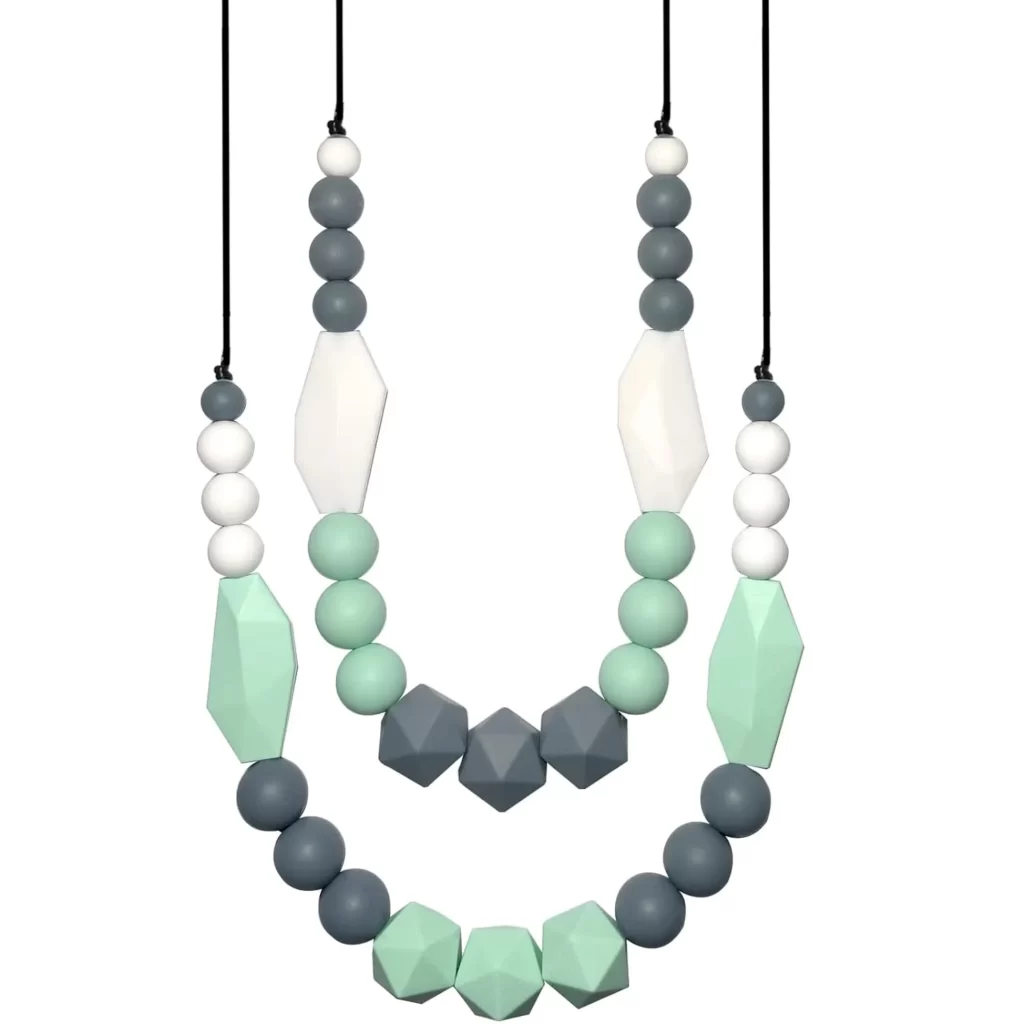
In the realm of motherhood, breastfeeding stands as one of the most cherished and intimate experiences between a mother and her baby. However, this journey is not without its share of challenges. Among these challenges, one that often takes mothers by surprise is the excruciating pain that accompanies the moment when their baby bites during breastfeeding. The reaction is almost universal – “He just bit me!” It’s an unsettling experience for both mothers and babies, but it doesn’t have to spell the end of your breastfeeding journey. In this comprehensive guide, we will explore the reasons behind newborn biting while breastfeeding and provide practical strategies for both prevention and resolution.
Related: How Do I Prepare for Breastfeeding?
Why are the Reasons for Newborn Biting While Breastfeeding?
Breastfeeding is a beautiful and intimate experience that provides essential nourishment and bonding between a mother and her baby. However, as your newborn navigates this new world of feeding, they may occasionally bite. It’s important to recognize that newborns typically don’t bite with malicious intent; there are various reasons why they may do so:
Teething Troubles
Teething is a natural developmental milestone for infants, and it’s one of the most common causes of biting during breastfeeding. Babies tend to put anything they can find into their mouths when their gums are sore and uncomfortable. Unfortunately, sometimes that “anything” includes your breast. While teething toys may not voice their pain, breastfeeding mothers often do.
If the biting is sporadic, occurring at different times during feeds and coinciding with classic teething symptoms such as red cheeks, excessive drooling, irritability, and disrupted sleep, it’s likely due to teething. The good news is that this phase is temporary, and babies usually stop biting on their own once the teething discomfort subsides.
What to Do:
- Stay Calm: Try to tone down your reaction when your baby bites. Loud cries or shouting can scare them and potentially lead to a nursing strike.
- Break the Suction: Use your finger to gently break the suction and remove your baby from the breast. Comfort them and offer something cool or a teething toy for relief. After a brief break, re-latch them.
- Check the Latch: Pay close attention to how your baby latches. Ensuring they have a deep latch with their tongue over the lower gum can help prevent biting.
End-of-Feed Biting
Sometimes, babies bite at the end of a breastfeed because they’re no longer hungry or are simply bored. Others might do it out of frustration due to a slow milk letdown.
What to Do:
- Observe Signs: Look for signs that your baby is no longer efficiently feeding, such as tension in the jaw, fidgeting, or pulling back while still holding onto the breast.
- Remove and Redirect: When you notice these signs, gently remove your baby from the breast and offer them a teething toy or another suitable item to bite on.
- Deep Latch and Compressions: If your baby appears hungry but continues to bite, re-latch them deeply and use breast compressions to stimulate another letdown and increase milk flow.
Habitual Biting
Babies explore the world around them by putting objects into their mouths. While most of these items pose no harm, they might struggle to understand why they can’t treat your breast the same way they do a teething toy. This habit is often seen in babies who use pacifiers, bottles, or soft teat sippy cups.
What to Do:
- Stay Calm: As with any form of biting, remain calm and gently remove your baby from the breast.
- Address Other Objects: Gradually wean your baby off pacifiers, switch to hard-top sippy cups, and monitor their bottle-feeding behavior. If they bite, take the bottle away temporarily and explain that biting is not acceptable.
Behavioral Biting
As babies grow, they develop habits and behaviors. Some may bite during breastfeeding as a way to seek attention, especially if you’re distracted or engrossed in other activities.
What to Do:
- Stay Engaged: Periodically check in with your baby during breastfeeding. Make eye contact, speak to them, or hold their hand to let them know you are present.
- Establish Boundaries: If your baby does bite, calmly remove them from the breast and communicate that biting is painful and unacceptable. Give them a brief break before relatching.
Now that we understand why newborns may bite during breastfeeding, let’s explore some strategies to prevent and manage this behavior effectively.
Related: Benefits of Breastfeeding
What are the Strategies for Preventing Newborn Biting While Breastfeeding?
1. Teething Solutions
If teething discomfort is the primary cause of biting, consider using teething toys or teething gels to soothe your baby’s gums before breastfeeding.
2. Proper Latch
Ensure your baby has a proper latch during breastfeeding. This means their mouth should cover a significant portion of your areola, not just the nipple. A correct latch minimizes the chances of biting.
3. Positioning
Experiment with different breastfeeding positions to find the one that works best for you and your baby. Sometimes, a change in position can discourage biting.
4. Feeding in a Relaxed Environment
Create a calm and relaxed feeding environment. Minimize distractions and ensure your baby is calm and not hungry when you begin breastfeeding.
Related: Side Effects of Stopping Breastfeeding
What are the Strategies for Managing Newborn Biting While Breastfeeding?
1. React Calmly
If your baby does bite, it’s crucial to remain calm. Reacting strongly might startle your baby, making the situation worse. Instead, gently break the latch and try again.
2. Use a Teething Necklace
Teething necklaces made from safe materials can serve as a distraction for your baby during breastfeeding. They can help redirect their biting tendencies.
3. Offer a Teething Toy
Having a teething toy within reach can be handy. If your baby starts to bite, offer the toy as an alternative to your breast.
4. Watch for Signs of Hunger
Sometimes, babies bite when they are not hungry but still want to comfort nurse. Be attentive to your baby’s cues and offer breastfeeding when they are genuinely hungry.
5. Consistent Boundaries
As your baby grows and understands better, gently communicate that biting is not acceptable. You can say a firm but gentle “no” and briefly end the feeding session.
Now, let’s explore some real-world experiences and advice from other mothers who have faced newborn biting during breastfeeding.
Related: Common Questions about Breastfeeding Twins
Real Stories and Practical Advice
Story 1: Emily’s Teething Troubles
Emily, a first-time mother, shares her experience dealing with her teething baby’s biting during breastfeeding. She discovered a helpful teething gel that provided relief to her baby’s gums before each feeding session. Emily’s advice: “Always keep a tube of teething gel handy; it made a significant difference for us.”

Story 2: Sarah’s Positioning Revelation
Sarah, a seasoned breastfeeding mom, recounts how changing her breastfeeding position helped deter her baby’s biting habit. She says, “I started using the football hold, and it seemed to make it more challenging for my baby to bite. Give it a try if you’re struggling with biting issues.”

Here’s what you need to know about the football hold breastfeeding position:The football hold, also known as the clutch hold, is a breastfeeding position where the baby is held at the side of the mother’s body, with the baby’s legs tucked under the mother’s arm. This position is particularly useful for mothers who have had a C-section, have large breasts, or have a forceful milk ejection reflex. The position can also be helpful for mothers with twins who want to feed both babies at the same time. Here are the steps to achieve the football hold:
- Position your baby at your side, under your arm, supported by a pillow.
- Rest your arm on the pillow and support your baby’s head with your hand.
- Bring your baby to your breast, with your baby’s nose just above your nipple.
- Use your other hand to support your breast if needed.
- Make sure your baby’s mouth is wide open and covers a large portion of the areola.
- Ensure that your baby’s head, neck, and spine are in a straight line.
- Use a rolled-up receiving blanket to support your baby’s back if needed.
Story 3: Jessica’s Teething Necklace Solution

Jessica, a mother of twins, shares her strategy for managing newborn biting. She says, “I started wearing a teething necklace, and whenever one of my twins started to bite, I would gently offer them the necklace to chew on instead. It worked like a charm!”
Related: Breast Self-Exam: When to Worry, When to Seek Help
Additional Resources
For more information on breastfeeding and newborn care, you can explore the following resources:
Frequently Asked Questions (FAQ)
Is it normal for newborns to bite during breastfeeding?
Yes, it is relatively common for newborns to bite during breastfeeding, especially when they are teething or trying to adjust their latch. However, with proper guidance and strategies, this behavior can be managed effectively.
Should I be worried about nipple damage if my baby bites?
While nipple damage can occur if your baby bites during breastfeeding, it’s usually minor. To minimize the risk of damage, ensure a proper latch and take preventive measures to discourage biting.
Can teething toys really help with biting?
Yes, teething toys can be a useful distraction for your baby during breastfeeding. They can provide relief to sore gums and redirect your baby’s biting tendencies.
Conclusion
Breastfeeding is a unique and cherished experience for both you and your baby. While newborn biting during breastfeeding can be challenging, it’s essential to remain patient and employ the strategies mentioned in this guide. Remember that every baby is different, so finding the right approach that works for you and your baby may take some trial and error. By understanding the causes and implementing these strategies, you can continue to enjoy the beautiful bond that breastfeeding provides.
Now, armed with knowledge and practical tips, you can navigate the challenges of newborn biting during breastfeeding with confidence and grace. Remember, you’re not alone on this journey, and there is support and guidance available to help you and your baby thrive.🍼💕
Disclaimer: The information provided in this article is for educational purposes only and should not replace professional medical advice. If you have concerns about breastfeeding or your baby's biting behavior, consult with a healthcare provider or lactation consultant for personalized guidance.











